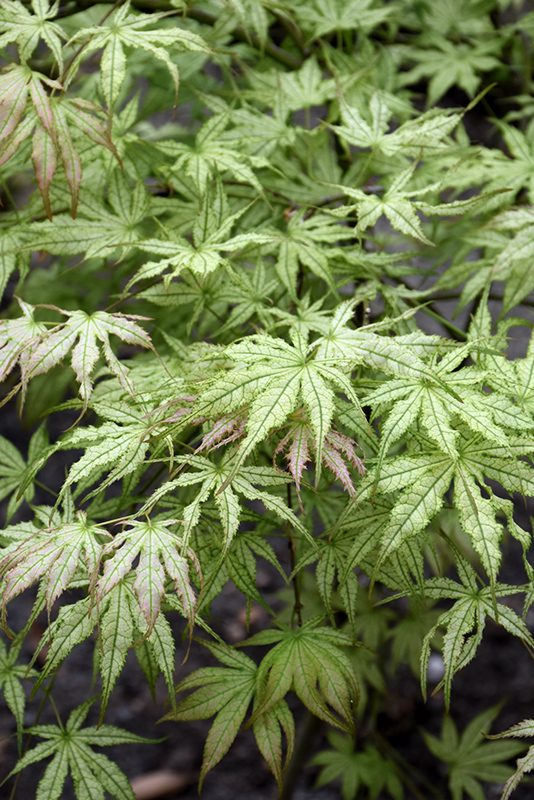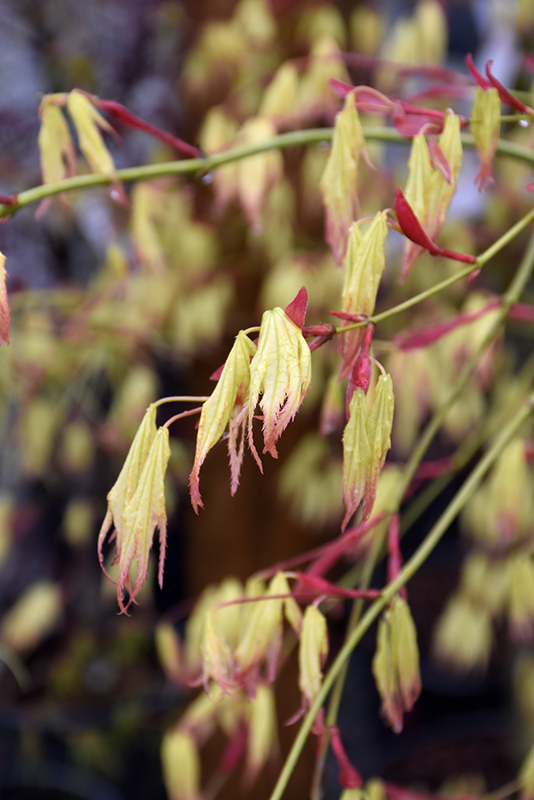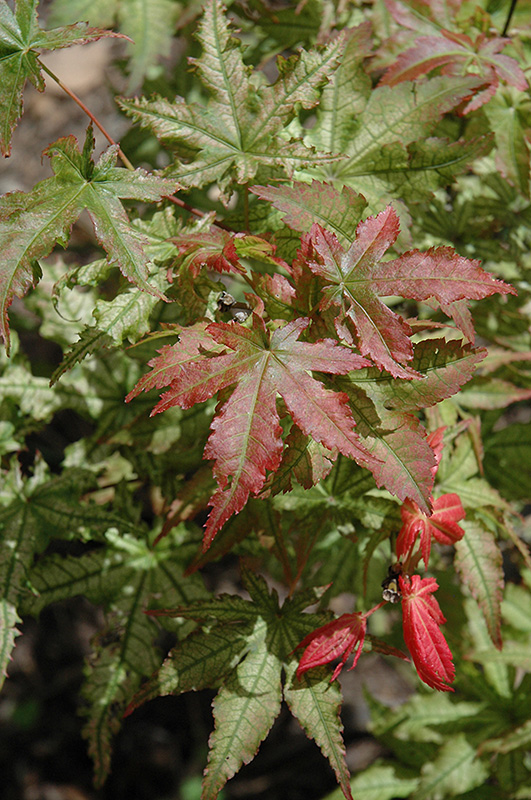Japanese Maple, Peaches & Cream Acer palmatum 'Peaches And Cream' Height: 7 feet Spread: 6 feet
Sunlight:
Hardiness Zone: 4b Description: Creamy leaves have green veins and rose undertones from spring through summer, turning bright yellow in fall; a shrubby form with an elegant vase shape habit, often grows wider than tall. Need afternoon shade and wind protection. Ornamental Features Japanese Maple, Peaches & Cream is primarily valued in the landscape or garden for its ornamental globe-shaped form. It has attractive creamy white foliage with green veins and tinges of rose. The lobed palmate leaves are highly ornamental and turn outstanding shades of yellow and gold in the fall. Landscape Attributes Japanese Maple, Peaches & Cream is a dense deciduous tree with a strong central leader and a more or less rounded form. Its relatively fine texture sets it apart from other landscape plants with less refined foliage. This is a relatively low maintenance tree, and should only be pruned in summer after the leaves have fully developed, as it may 'bleed' sap if pruned in late winter or early spring. It has no significant negative characteristics. Japanese Maple, Peaches & Cream is recommended for the following landscape applications; Planting & Growing Japanese Maple, Peaches & Cream will grow to be about 7 feet tall at maturity, with a spread of 6 feet. It tends to be a little leggy, with a typical clearance of 1 foot from the ground, and is suitable for planting under power lines. It grows at a slow rate, and under ideal conditions can be expected to live for 60 years or more. This tree should be grown in a location with partial shade and which is shaded from the hot afternoon sun. It prefers to grow in average to moist conditions, and shouldn't be allowed to dry out. This plant should be periodically fertilized throughout the active growing season with a specially-formulated acidic fertilizer. It is not particular as to soil pH, but grows best in rich soils. It is somewhat tolerant of urban pollution, and will benefit from being planted in a relatively sheltered location. Consider applying a thick mulch around the root zone in winter to protect it in exposed locations or colder microclimates. This is a selected variety of a species not originally from North America. Japanese Maple, Peaches & Cream is a fine choice for the yard, but it is also a good selection for planting in outdoor pots and containers. Because of its height, it is often used as a 'thriller' in the 'spiller-thriller-filler' container combination; plant it near the center of the pot, surrounded by smaller plants and those that spill over the edges. It is even sizeable enough that it can be grown alone in a suitable container. Note that when grown in a container, it may not perform exactly as indicated on the tag - this is to be expected. Also note that when growing plants in outdoor containers and baskets, they may require more frequent waterings than they would in the yard or garden.![]()
![]()
![]()
![]()
![]()
![]()
![]()
![]()
![]()
![]()
![]()
![]()
![]()
![]()



